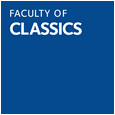Ancient texts and archaeological evidence indicate substantial lead exposure during antiquity that potentially impacted human health. Although lead exposure routes were many and included use of glazed tablewares, paints, cosmetics, and even intentional ingestion, the most significant for the nonelite, rural majority of the population may have been through background air pollution from mining and smelting of silver and lead ores that underpinned the Roman economy. Here we determined potential health effects of this air pollution using Arctic ice core measurements of Roman-era lead pollution, atmospheric modeling, and modern epidemiology-based relationships between air concentrations, blood lead levels, and cognitive decline. Findings suggest air lead concentrations exceeded 150 ng/m3 near metallurgical emission sources, with average enhancements of >1.0 ng/m3 over Europe during the Pax Romana apogee of the Roman Empire. The result was blood lead enhancements in young children of about 2.4 µg/dl above an estimated Neolithic background of 1.0 µg/dl, leading to widespread cognitive decline including a 2.5-to-3 point reduction in intelligence quotient throughout the Roman Empire. Significance: The detrimental effects of modern lead exposure on human health are widely recognized. Evidence from the Roman era indicates substantial lead exposure that potentially impacted human health more than 2,000 y ago. The most significant exposure for the rural, nonelite population may have been to background air pollution from silver mining and smelting that underpinned the Roman economy. Using detailed records of Roman-era lead pollution measured in Arctic ice cores and atmospheric modeling, we show that lead emissions from these activities elevated air concentrations throughout Europe. Based on modern epidemiological studies, this air pollution enhanced childhood blood lead levels (BLLs) by about 2.4 µg/dl leading to widespread cognitive decline including an estimated 2.5-to-3 point reduction in intelligence quotient.
human health
,Roman antiquity
,intelligence quotient
,lead poisoning
,lead pollution



